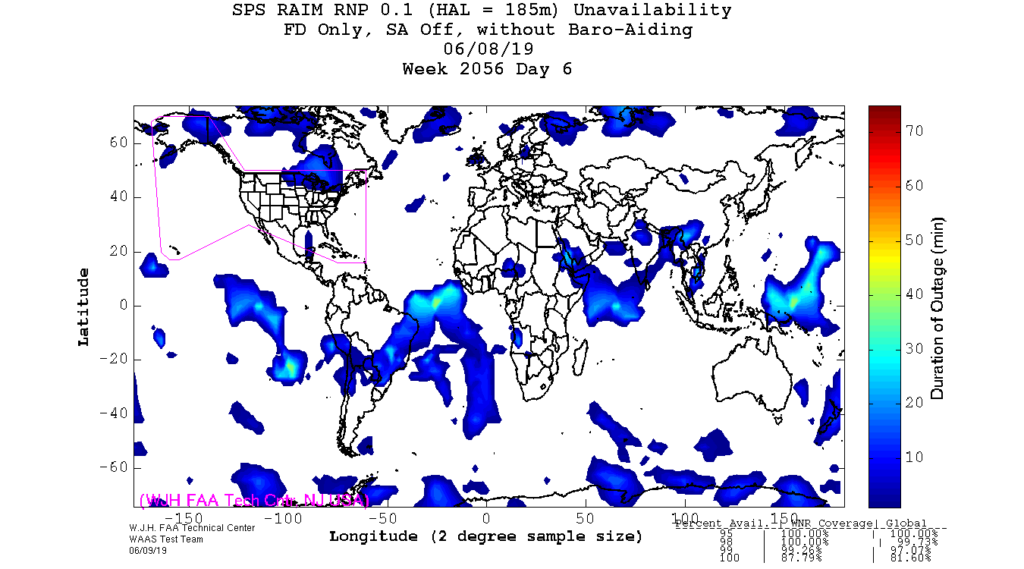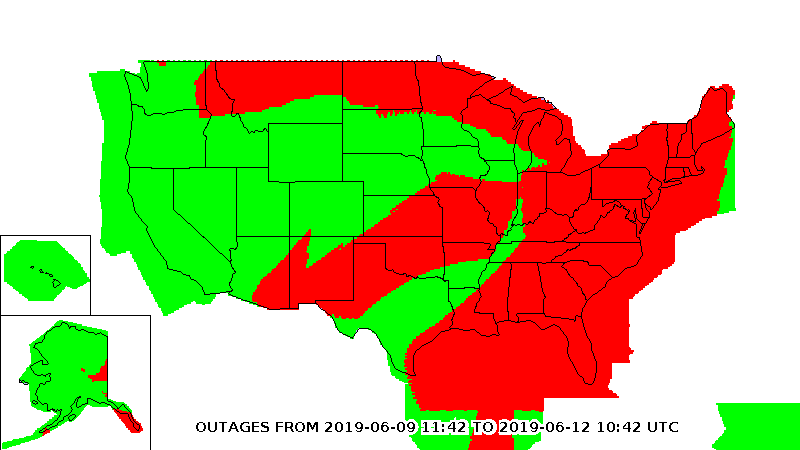
Passenger airline flights were affected Saturday and Sunday 8 and 9 June 2019, due to an expected minor signal outage, plus a glitch with a particular type of GPS receiver. The affected planes were mostly Bombardier CRJ-200 and CRJ-700s, but also included CRJ-900s, as well as Boeing 737 and 767s.
Reports on Airliners.net indicate particular concerns with GPS receivers supplied by Rockwell Collins. In case the airplane’s barometer were to fail, the onboard GPS receiver must be able to track altitude accurately enough to maintain normal operations in the Class A airspace above FL180. This requires a GPS vertical accuracy within 500 feet (152 meters), and that the GPS constellation be in fairly good alignment – which, every now and then, just doesn’t happen.
That’s what occurred this weekend over a region over the Great Lakes and extending out over much of North Dakota and Manitoba, such that certain areas can expect, in theory, up to 40 minutes of signal loss on Sunday. The FAA estimated still further regions in the US could be affected by the outage. As affected planes wait for a technical fix, they are flying below 18000 feet, or simply being replaced by unaffected aircraft.

In addition to highlighting the performance of one supplier’s GPS solution in an edge case, the incident also serves to highlight an increasing dependence on GPS for airline operations. Aviators have expressed concern about the trend of airports turning off their ILS, VOR, and NDB navigation systems. Many of these decisions assume that GPS will always be available, which may well be more than 98% correct. It’s the last 2% that may lead to unexpected problems.
